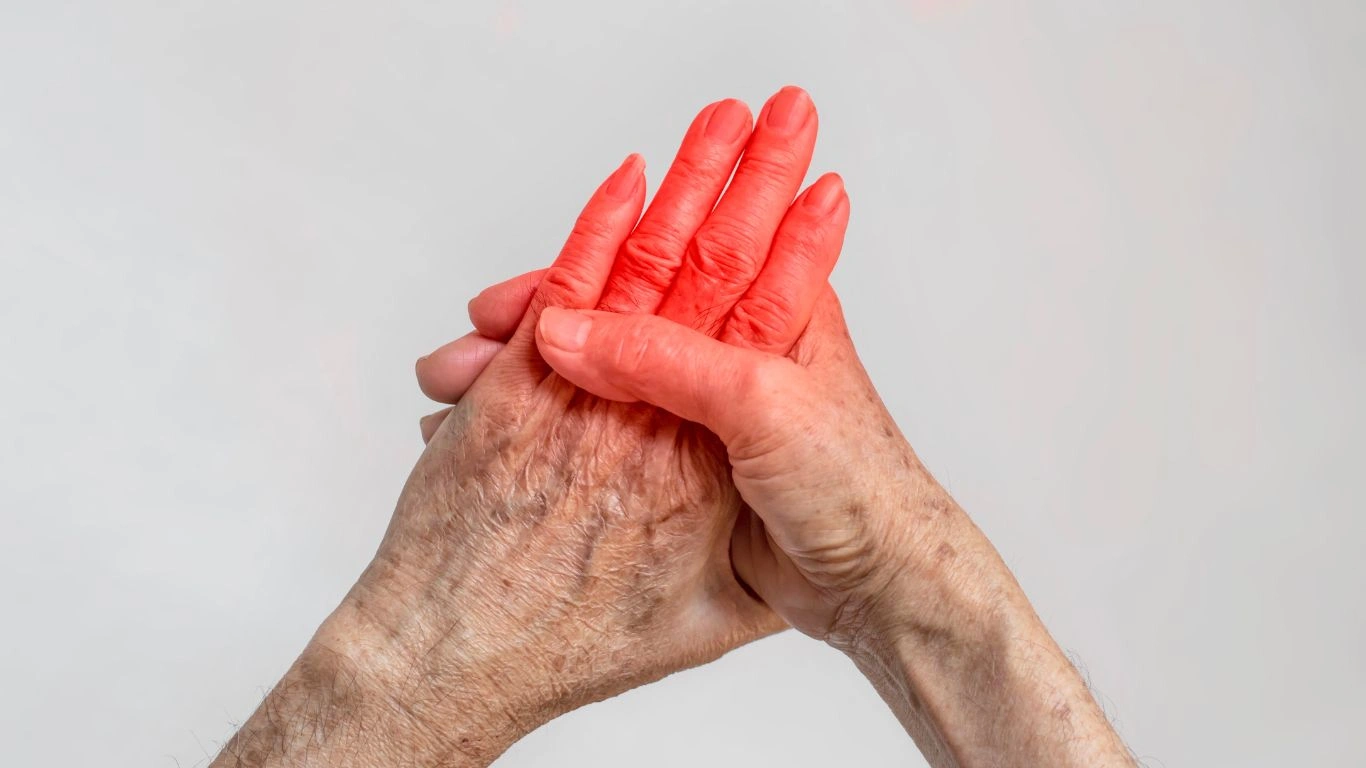Coping with Emotional Challenges of Rheumatoid Arthritis – A Practical Guide for Managing the Mental and Emotional Strain
Rheumatoid arthritis (RA) is not just a physical condition; it can take a huge toll on your emotional and mental well-being. Here’s everything you need to know about coping with the emotional challenges of RA and keeping your mental health in check.
Living with rheumatoid arthritis can feel like you’re constantly juggling a never-ending list of challenges. While the physical symptoms like joint pain and swelling are hard enough, RA often brings with it an emotional burden that many people don’t talk about. From feeling isolated to struggling with anxiety and depression, managing the mental side of RA is just as important as managing the physical side.

Understanding the Emotional Impact of Rheumatoid Arthritis
If you’ve been diagnosed with RA, you’re probably familiar with the emotional rollercoaster that can come with it. And it’s not just about feeling down for a day or two. RA can cause long-term emotional stress, impacting your overall mental health.
The fatigue, pain, and uncertainty that come with living with a chronic illness can leave you feeling drained and helpless at times. Sometimes, it feels like the physical discomfort isn’t the hardest part—it’s the mental strain. Here’s why that happens:
- Chronic Pain and Fatigue: When you’re constantly dealing with pain or exhaustion, it’s hard to focus on anything else. You might feel frustrated because your body just doesn’t do what you want it to.
- Uncertainty About the Future: RA is unpredictable. You can go from feeling fine one day to struggling the next. That unpredictability can be mentally exhausting, making it hard to plan for the future or even enjoy the present.
- Loss of Control: RA can affect your ability to do the things you used to love, or even the things you’ve always taken for granted, like getting out of bed without pain. That sense of loss can bring up feelings of sadness and frustration.
But you’re not stuck in this place. There are strategies and tools you can use to manage the emotional side of RA.

How to Cope with the Emotional Challenges of RA
There are a variety of ways to manage the emotional aspects of rheumatoid arthritis. While everyone’s experience is unique, these tips can help make your journey a little smoother.
1. Acknowledge Your Feelings
The first step in managing emotional health with RA is simply acknowledging how you feel. It’s okay to feel frustrated, sad, or overwhelmed. RA isn’t just a physical condition; it affects your emotional well-being too.
Don’t brush those feelings under the rug. Give yourself the grace to process them. If you feel angry, disappointed, or anxious, let yourself experience those emotions rather than suppressing them. This can be a big step toward healing.
2. Seek Support
Living with RA can sometimes feel isolating, but it’s important to remember that you don’t have to do it alone. Talking to people who understand can help lighten the emotional load. Consider these options:
- Support Groups: There are many RA support groups, both in-person and online, where you can connect with others who are going through the same thing. Sharing your experience can be cathartic and help you feel understood.
- Family and Friends: If you have loved ones who are supportive, don’t hesitate to lean on them. Opening up about your emotional struggles can strengthen your relationships and help you feel more supported.
- Therapy: Speaking to a counselor or therapist can be incredibly beneficial. They can help you explore your feelings and teach you coping strategies to manage stress and anxiety that come with chronic illness.

3. Practice Self-Care
Self-care isn’t just about pampering yourself (though that’s important too). It’s about taking the time to nurture your body and mind. Here are some ways to practice self-care when dealing with RA:
- Exercise: It may sound counterintuitive when your joints hurt, but gentle exercise like swimming, yoga, or stretching can help improve both your physical and mental health. Exercise releases endorphins, which are natural mood boosters.
- Healthy Diet: Eating anti-inflammatory foods (like fish, leafy greens, and nuts) can help reduce pain and make you feel better overall. Plus, a healthy diet can improve your mood and energy levels.
- Rest: RA can drain your energy, so it’s crucial to get enough rest. Make sure you’re sleeping well and allowing your body to recover from the physical and emotional demands of the day.
4. Manage Stress
Stress can make everything feel worse, both physically and emotionally. Finding ways to reduce stress can help you manage the emotional challenges of RA more effectively. Here are some ways to relax:
- Mindfulness and Meditation: Mindfulness techniques can help you focus on the present moment, reducing feelings of anxiety or stress. Meditation is another great tool for calming your mind.
- Deep Breathing Exercises: When you’re feeling overwhelmed, deep breathing can help reduce stress and anxiety. Try inhaling slowly for four counts, holding your breath for four counts, and then exhaling slowly for four counts.
- Hobbies: Doing something you love, whether it’s reading, painting, or gardening, can take your mind off the pain and give you a break from the stress.
5. Create a Routine
Having a routine can help reduce the uncertainty that comes with living with RA. By establishing a predictable daily schedule, you give yourself a sense of control over your life. This can also help alleviate anxiety about what’s coming next.

Emotional Strain and RA: When to Seek Professional Help
While the above strategies can be helpful, sometimes emotional challenges go beyond what self-care or support can provide. If you find yourself feeling overwhelmed by feelings of depression, anxiety, or hopelessness, it might be time to reach out to a professional for help. A therapist can guide you through these tough emotions and help you develop stronger coping strategies.
Also, don’t hesitate to talk to your healthcare provider about how RA is affecting your mental health. They can recommend treatments, therapies, or medications that can help improve your emotional well-being.
Conclusion
Dealing with the emotional challenges of rheumatoid arthritis isn’t easy, but it’s possible to find ways to cope. Acknowledging your feelings, seeking support, practicing self-care, and managing stress can help make your emotional journey a little smoother. Most importantly, remember that you’re not alone in this, and there are always resources available to help you cope and thrive.
Appendices
FAQs
- Can rheumatoid arthritis cause depression?
Yes, the chronic pain and limitations that come with RA can lead to feelings of depression. It’s essential to acknowledge these feelings and seek help when necessary. - How can I manage stress with RA?
Mindfulness, yoga, deep breathing, and hobbies can help manage stress. Exercise and a routine also make a big difference. - Is it normal to feel isolated with RA?
Yes, RA can make you feel isolated, but support groups and talking to others who understand your condition can provide comfort and reduce loneliness. - Can RA affect my relationships?
RA can sometimes strain relationships due to the emotional and physical challenges it presents. Open communication and seeking professional help can improve relationships. - When should I seek professional help for emotional health?
If you feel consistently depressed, anxious, or overwhelmed, it’s a good idea to speak to a therapist or healthcare provider for guidance.
References
- Arthritis Foundation. (2023). Coping with the Emotional Impact of Rheumatoid Arthritis.
- Mayo Clinic. (2024). Managing Chronic Pain and Mental Health.
- National Rheumatoid Arthritis Society. (2022). Living with RA: Mental Health Support.
Disclaimer
The information provided in this article is for educational purposes only and does not substitute for professional medical or psychological advice. Always consult with your healthcare provider regarding any concerns you may have about managing the emotional challenges of rheumatoid arthritis. Individual experiences may vary.














